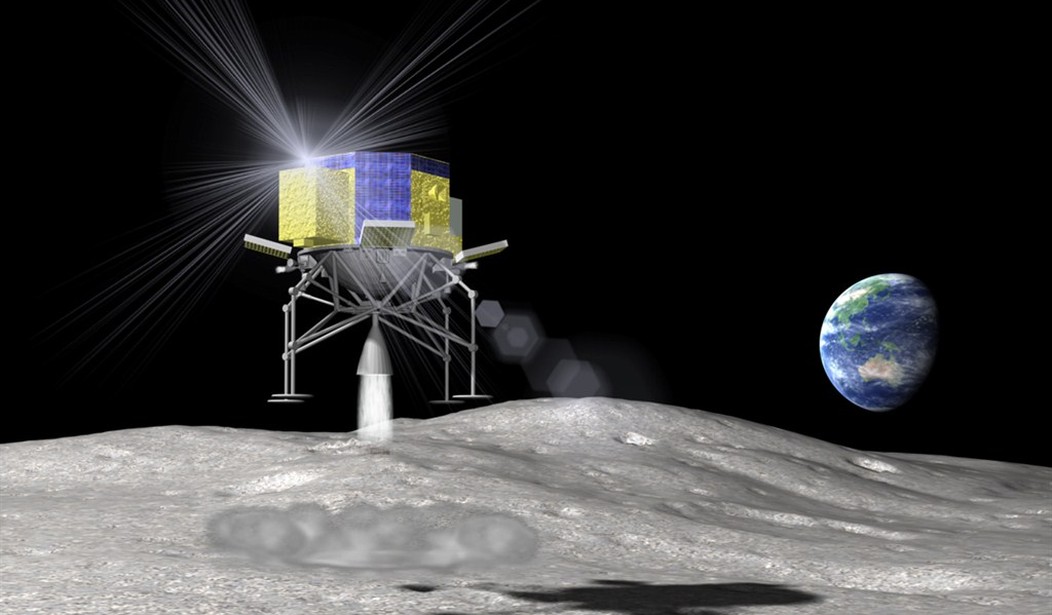Yesterday, we discussed the launch of the United Launch Alliance Vulcan rocket to the moon and the objections raised by the Navajo Nation to putting human remains on the lunar surface. Based on the first reports coming back from space, the indigenous people’s concerns may have been for naught because it sounds like the Vulcan’s lunar lander will never have the opportunity to set down. There has reportedly been a “critical loss of fuel” onboard the craft and it is currently scrambling to use its solar panels to charge its batteries while United’s technicians analyze the issue. The apparent leak was first noticed roughly seven hours after liftoff and was continuing well into the night. It’s currently estimated that the craft will only have enough battery power for another 40 hours of operation and the mission essentially appears to be doomed.
The first U.S. moon landing attempt in more than 50 years appeared to be doomed after a private company’s spacecraft developed a “critical” fuel leak just hours after Monday’s launch.
Pittsburgh-based Astrobotic Technology managed to orient its lander toward the sun so the solar panel could collect sunlight and charge its battery, as a special team assessed the status of what was termed “a failure in the propulsion system.”
It soon became apparent, however, that there was “a critical loss of fuel,” further dimming hope for what had been a planned moon landing on Feb. 23.
This will no doubt come as a serious disappointment to all involved at United Launch Alliance and the customers who paid to have payloads brought to the moon. But as Elon Musk once famously said, “Space is hard.” It’s difficult enough to start a company making cars to safely carry people on the roads or boats to ferry people across a lake without sinking and drowning the passengers. Making airplanes can be even more challenging, as some highly embarrassed people at Boeing could tell you this week. But going into space successfully takes things to an entirely different level. Space is constantly trying to kill you and the temperatures you encounter will vary by hundreds of degrees depending on your exposure to the sun. Plus, you’re operating in a complete vacuum.
But we should keep in mind that the Vulcan wasn’t the only moon mission on the docket. Early next month, Intuitive Machines of Houston has a lunar lander that will hitch a ride with SpaceX and attempt the same feat. Elon Musk has a nearly perfect track record for launches (with the exception of his new, experimental Starship) so they should at least make it into orbit. Whether they can manage the passage to the moon and execute a controlled landing remains to be seen.
Who will win the private sector space race?
This friendly competition between ULA and Intuitive Machines brings us back to the question of which private-sector operation will win the 21st-century space race. There is a growing interest in space as a source of industrial opportunity and also the latest craze in tourism, at least for the extremely wealthy. The Debrief looked at the Vulcan launch in advance and shared a few thoughts about the coming rivalry between ULA and SpaceX.
Following years of setbacks, the successful launch of ULA’s Vulcan marks the most recent challenge to Elon Musk’s SpaceX, which launched 96 successful missions with its Falcon rockets during the last twelve months.
ULA has said the company is aiming to launch its Vulcan missions as frequently as every other week by the end of next year, having already sold 70 missions in an escalating rivalry between the company and SpaceX.
In addition to commercial rocket rivalry, several of the future Vulcan missions are expected to carry internet satellites supporting Amazon’s Project Kuiper to orbit. With its constellation of 3,236 satellites in low Earth orbit (LEO), Project Kuiper aims to provide global broadband internet access similar to Musk’s Starlink.
Elon Musk has mostly had the realm of low-Earth orbit to himself in terms of nongovernmental commercial enterprise for quite a few years. And unlike most governments, he’s actually managed to make it profitable. That caught the attention of other billionaires and investment groups who began building rockets of their own. A few have seen limited success, but nothing on the scale of SpaceX has emerged yet. It appears that may be about to change, however. It’s an exciting time for fans of space exploration and I’m personally looking forward to it.








Join the conversation as a VIP Member